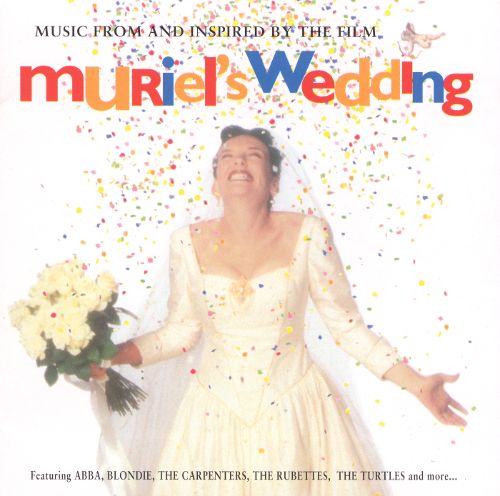by Chris Feil
 It’s a sad truth that the closest thing we’ve gotten to Toni Collette starring in a screen musical is Muriel’s Wedding (and Connie and Carla, but that's for another day). The forgotten half-truth is that it isn’t the only screen ABBA musical. Sure, Mamma Mia! actually features full blown singing and dancing, but just because Muriel’s Wedding’s musicality exists in the daydreaming of its heroine, that doesn’t mean we’re spared the delights of a slew ABBA’s biggest hits. But the tunes are so crucial to the film’s identity and omnipresent throughout that it’s a huge missed opportunity that Muriel’s inevitable stage adaptation will never be the ABBA jukebox musical that could have been.
It’s a sad truth that the closest thing we’ve gotten to Toni Collette starring in a screen musical is Muriel’s Wedding (and Connie and Carla, but that's for another day). The forgotten half-truth is that it isn’t the only screen ABBA musical. Sure, Mamma Mia! actually features full blown singing and dancing, but just because Muriel’s Wedding’s musicality exists in the daydreaming of its heroine, that doesn’t mean we’re spared the delights of a slew ABBA’s biggest hits. But the tunes are so crucial to the film’s identity and omnipresent throughout that it’s a huge missed opportunity that Muriel’s inevitable stage adaptation will never be the ABBA jukebox musical that could have been.
Paired with Collette’s rangey, bittersweet performance, the film uses the relentless optimism of the legendary group to surprising effect, making the catharsis inherent to the Swerdish pop group’s stylings a hard won battle. While Mamma Mia! is pure indulgence into their sweet extremity, in Muriel we see the kind of melancholy that uses such pop escapism as a coping tool. It’s music we listen to when we need the pick-me-up, and Collette marinates in the pathos of a group that is rarely examined with much depth.
Naturally the ultimate ABBA track “Dancing Queen” recurs throughout the film as Muriel’s theme song. At first we see Muriel alone in her room, barely whispering along, lost to her woes. It’s a “sing out Louise” moment and not just because of the aforementioned lack of Collette screen musical. It’s a jarring juxtaposition to how the song is normally used in pop culture, the hopelessness in Collette’s eyes against its propulsive neon glory. You just want her to get caught in its release, belt it out, and take hold of her destiny.
I mean, how are you supposed to be sad listening to “Dancing Queen”?! But here the song becomes the tide that carries our emotional response - this is a crucial moment we’ll recall when the song returns, its joy finally reflected in Muriel’s exhale.
She first finds her power, along with new bestie Rhonda, in performing “Waterloo” in front of the spiteful girls she’s latched her need for approval onto. Again, we just Muriel to submit to silly sway of the track but she begins timid. As if she hadn’t performed this number one hundred times alone in her room. But her shame fades when the watching girls eviscerate eachother and Rhonda becomes the judgment-free equal she has been longing for. Its both a relief to see Muriel relax and for us to be allowed back into ABBA’s intended ecstatic sway.
You want ABBA to be this fun and we want Muriel to always be this happy. Sadly, “Dancing Queen” remains the heartbroken undertow of the film.
Later, after the two have been torn apart, “Dancing Queen” finally provides the catharsis in its nature when they are reunited. Muriel has cast off her oppressors and is comfortable in her own skin, having the time of her life as she reclaims it. It’s as if it has finally, truly become HER song for the first time. As it should be, ABBA truly is the sound of loving yourself, no?
All Soundtracking installments can be found here!